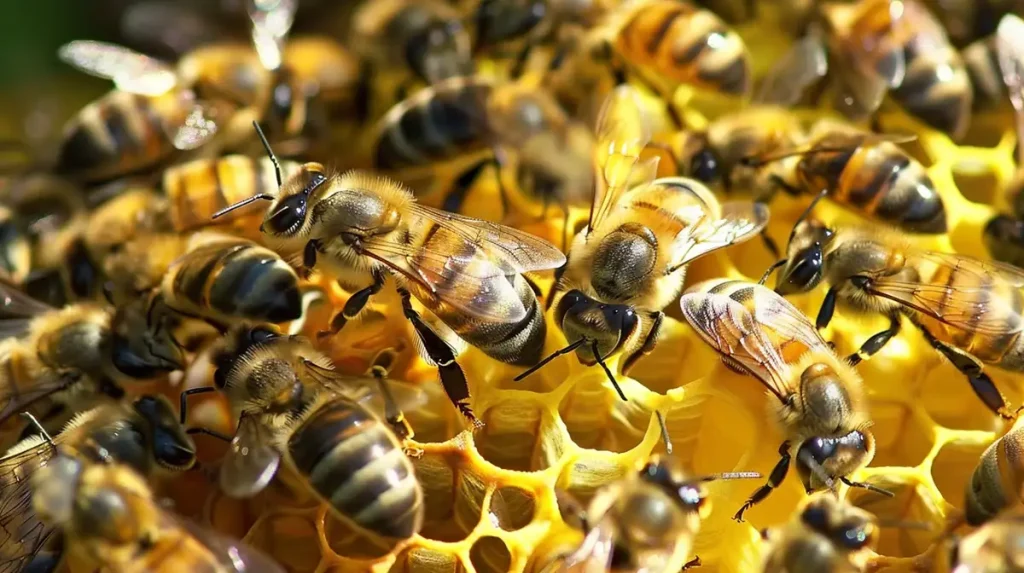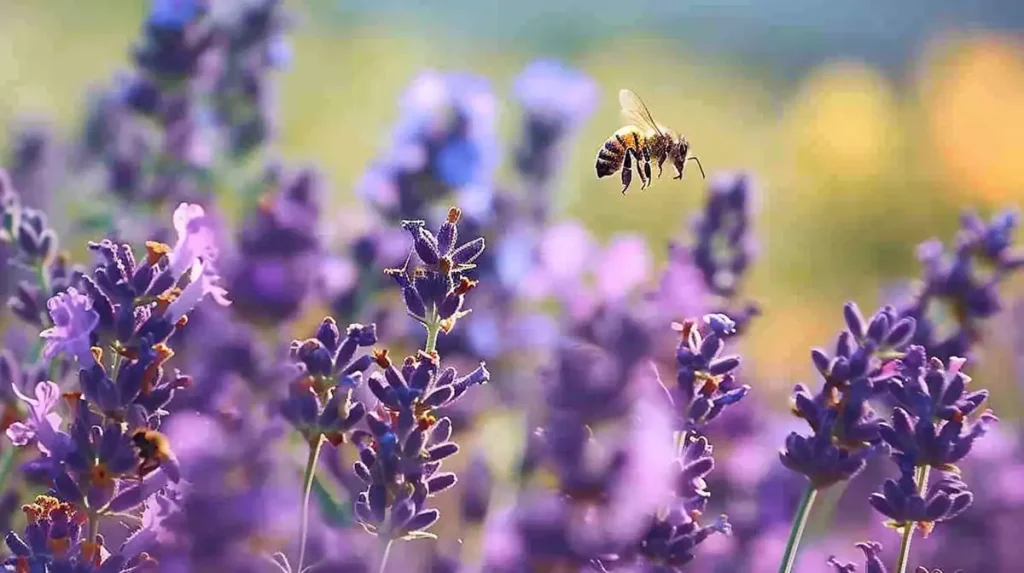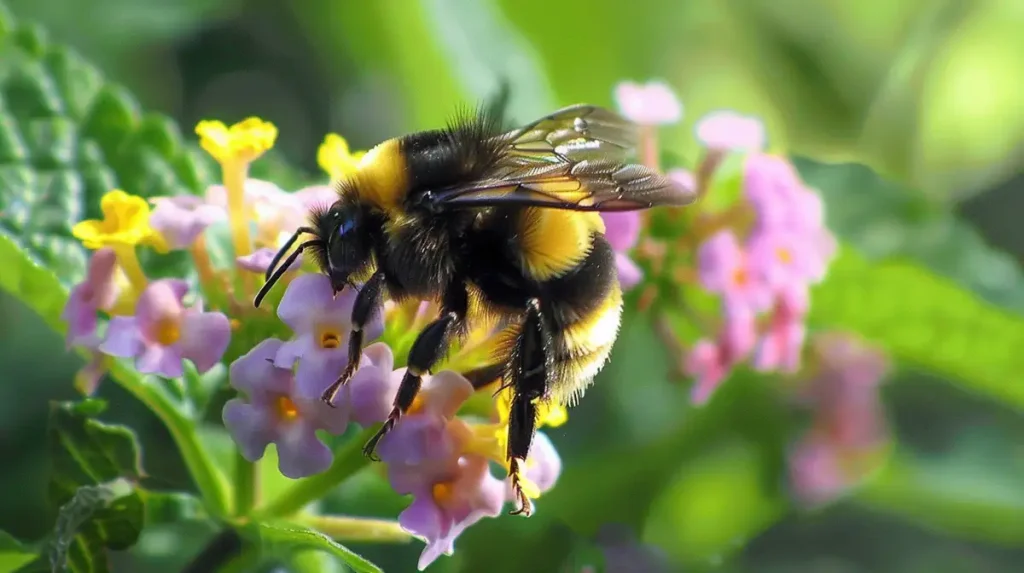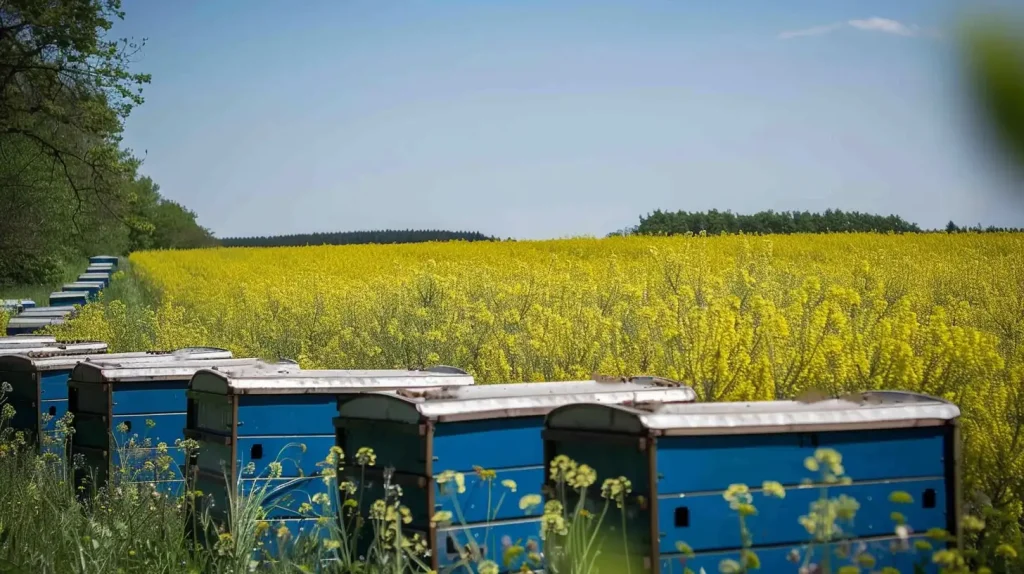Table of Contents
It is pretty safe to say that most of the world is ignorant concerning honeybees and what makes them tick. We are all aware that honeybees exist, but that’s as far as the knowledge goes for most of us. That’s a shame. Our collective ignorance regarding bees is one of the reasons the beekeeping hobby is not nearly as popular as it once was.
Other articles on my site have discussed everything from why beekeeping is a great hobby to how you can actually get started as a new beekeeper. This article addresses a more critical topic: how beekeeping helps the environment. If nothing else, the contribution bees make to the world around us is reason enough to encourage more people to take up beekeeping.
Beekeeping helps the environment in three ways:
- Beekeeping promotes pollination
- Beekeeping provides food for predators
- Beekeeping helps to maintain nature’s balance
I will cover each of these in this article.
As you read, please make a point of remembering that bees are a natural part of the world in which we live. As such, they are also part of the delicate balance of nature we need to maintain if the world is to continue thriving. We owe it to ourselves and future generations to ensure that beekeeping continues around the world.
A Few Bee Basics
An introduction to a few bee basics is in order before we talk about beekeeping’s contributions to the environment. The first thing to note is that the bee species we usually refer to as the honeybee is known formally as the Western honeybee or the European honeybee. Its scientific name is Apis mellifera.
There are between 7 and 12 different species of honeybees in the world depending on whose classifications you prefer. The Western honeybee is the most common among them. Humans have managed to domesticate these bees over thousands of years of beekeeping.

Lastly, within the 7 to 12 different recognized honeybee species, there are 44 subspecies. The smaller subspecies are certainly important for the purposes of scientific classification, but not so important to this discussion. I will be focusing my attention on the Western honeybee and its relationship to the natural world.
With all of that out of the way, let us move on to the main topic at hand. Below are the three different ways in which beekeeping helps the environment. All of them are more important than most people know.
1. Beekeeping Promotes Pollination
You may have learned by reading some of my other posts that bees are pollinators. What is a pollinator? It is an insect or animal that carries pollen from one plant to another. This is how plants reproduce. As a bee feeds on one plant, some of the pollen from the plant sticks to the bee’s body. When that bee lands on a second plant, some of that pollen falls into the second plant’s reproductive system.
This process is known as pollination. It is the only process by which plants can create the new seeds that will eventually give rise to new plants. As such, pollinators are critical to maintaining plant life.

Although bees are by no means the only pollinators in nature, they are among the most prolific. They are by far responsible for the largest percentage of global pollination. This suggests that maintaining bee populations is critical to maintaining active pollination. Thus, beekeeping is a big part of supporting plant life by keeping bee pollinators alive and actively pollinating.
- Carter, Anthony (Author)
- English (Publication Language)
- 194 Pages - 02/28/2024 (Publication Date) - Independently published (Publisher)
Pollination for Agriculture
Beekeepers the world over lend their bees to farmers looking for help pollinating their crops. If it were not for bees, worldwide food production would look a lot different. If our agricultural efforts were not as successful as they currently are, human beings would have to look for alternative food sources. This would definitely have an impact on the environment, wouldn’t it?
As much as some people do not view agriculture as contributing to the environment, it does. Agriculture is what sustains humanity. We are as much a part of the environment as any other creature, so maintaining our food supply contributes to the environment in a positive way by keeping us fed.
Pollination in the Wild
Pollination also exists in the wild. All those wildflowers and natural grasses you see as you drive down a country lane exist because pollinators make it happen. Beekeeping contributes to all those wild plants by stabilizing bee populations so that there are enough pollinators to keep things going.
Note that when beekeepers talk about pollination “in the wild”, they are referring to all non-agricultural pollination. Pollination in the wild therefore includes plant life found in cities, towns, and villages. Beekeeping in the country promotes pollination across vast fields and dense forests. In more urban and suburban environments, it promotes pollination in the same areas where most of us live.
2. Beekeeping Provides Food for Predators
Bees do not pollinate just for the sake of doing so. Pollination is the result of bees searching for food they can take back to the nest. As they feed, they pollinate.
The other side of that coin is a stark reality many people do not like to think about: bees also provide food. As uncomfortable as the natural food chain might be, it is reality. And without bees as a food source, many of their predators would struggle to find enough food.
What kinds of creatures prey on honeybees? There are more than I can list here, but let’s look at a few examples just to give you an idea:
- Insects: wasps, hornets, robber flies, dragonflies, praying mantis, and the European beewolf
- Arachnids: fishing spiders, lynx spiders, goldenrod spiders, and more
- Reptiles and Amphibians: anole lizards, American toads, certain varieties of bullfrogs and wood frogs
- Birds: hummingbirds, tiring flycatchers, summer Tanager’s, grackles, and more
- Mammals: bears, opossums, raccoons, honey badgers, and skunks.
Again, this is but a partial list of the predators. There are more. The take-away here is that there are other species that rely on bees as a food source. When bee populations fall for whatever reason, these predators are forced to find food elsewhere. That disrupts the natural workings of the food chain.
Just like the loss of agricultural opportunities would change the way human beings eat, dwindling bee populations affect the way bee predators eat. Those effects are felt all the way down the food chain. It is safe to say that disrupting one link in the chain ultimately disrupts all of them.
Beekeeping contributes to the environment in this regard by helping to balance the food chain. Maintaining healthy bee populations ensures that predators have an ample supply to feed on. That keeps their numbers stable which, in turn, creates stability all along the food chain.
3. Beekeeping Helps to Maintain Nature’s Balance
Did you know that bee survival in many parts of the world is completely dependent on beekeepers? Indeed, there are some places where wild bees do not exist anymore. Bees only survive in those areas because of professional and hobbyist beekeepers and the efforts they make to maintain bee populations. The net effect of this reality is that nature’s delicate balance is always at risk of being upset.

Thus far I have discussed pollination and predation. Now think of those two things as individual components in the grand scheme of environmental stability.
Are you familiar with the ‘circle of life’ concept promoted by the 1994 animated film The Lion King? The circle of life is not just a great song from that film, it is reality. Everything living is part of a grand circle of life that started in the past and will continue into the future. Bees are part of that circle, as are humans.
Keeping the circle of life going requires maintaining nature’s delicate balance. Pollination contributes to that balance; so does predation. Just in those two things alone, bees contribute a tremendous amount to the circle of life. By extension, beekeeping helps the environment by keeping one small segment of the circle of life spinning.
What if the circle were to stop?
Imagine if humanity allowed honeybees to go extinct. Imagine the impact that would have on agricultural and wild pollination. As already demonstrated, human food sources would be drastically different. But so to would wild food sources.
All those animals that thrive on wild plant life would find themselves with insufficient food. As the populations of those animals decreased, carnivores would then find themselves with less food. Their populations would decrease too.
If we allowed honeybees to die out, bee predators will have to look elsewhere for food. That would mean either dwindling numbers due to lack of food or more aggressive predation elsewhere that would ultimately reduce the numbers of other insects and animals.
Do you see where all of this is leading? We are all intrinsically tied together within nature. The world would probably still survive even if bee populations completely died out, but the quality of that survival would be in question. This is the reason beekeeping is so important.
Beekeeping helps the environment by contributing to the balance of nature. Just by keeping bees, hobbyists and professionals alike are adding to a complex world with far too many moving parts to quantify. We do not even want to imagine what the world would look like without bees.
More Than Just a Hobby
I hope this article has given you a glimpse into why beekeeping is so important. Needless to say, it is more than just a hobby. Beekeeping is an enterprise of interacting with nature on behalf of nature. It is something that human beings need to keep doing in perpetuity.
Unfortunately, human advancements in agriculture, construction, and technology have all contributed to falling bee populations. Yet we have an advantage over every other creature on the planet: we have the ability to rectify our mistakes for the common good.
Our modern agricultural practices may make it nearly impossible for bees to exist in the wild, but we still have the capacity to keep bees domestically. We can make up for our agricultural practices by encouraging more large-scale beekeeping. And that is just one example of what we can do.
Yes, beekeeping does contribute positively to the environment. Where most people see bees as a nuisance and a source of unpleasant stings, beekeepers understand how precious these insects are to the natural world. That knowledge motivates them to keep doing what they do. We all benefit as a result.
Is Beekeeping Bad for the Environment?
Beekeeping, when managed sustainably, can have numerous positive impacts on the environment. Bees are crucial pollinators, aiding in the growth of plants and contributing to biodiversity. Nevertheless, certain practices like pesticide use and habitat destruction can have negative consequences. It is essential for beekeepers to prioritize environmental protection and adopt eco-friendly techniques to minimize any harm.
How Does Beekeeping Help the Environment – Conclusion
In conclusion, beekeeping is not just a hobby or a source of delicious honey, but also a crucial activity for the environment. By keeping bees, we can help pollinate plants, increase biodiversity, and support local ecosystems. Additionally, the production of honey and other bee products can provide a sustainable source of income for beekeepers and their communities. However, it is important to approach beekeeping responsibly and with the necessary knowledge and resources to ensure the well-being of the bees and their habitat.
In recent years, there has been a growing concern about the decline of bee populations and the potential impact on our food supply and ecosystems. This makes beekeeping an even more important activity, as it allows us to help reverse this trend and promote the survival of these important pollinators. In addition, beekeeping can also help raise awareness about the importance of bees and their role in our ecosystem, and encourage people to take action to protect and support them.
Moreover, beekeeping can be a fun and rewarding activity for people of all ages, and can provide a unique opportunity to learn about nature and the environment. By working with bees, we can gain a greater appreciation for the intricate workings of nature and the interconnectedness of all living things. Whether you are a seasoned beekeeper or just starting out, there are many resources available to help you learn more about this fascinating activity and its benefits for the environment.
Overall, beekeeping is a valuable and rewarding activity that can have a positive impact on both the environment and the people involved. By promoting biodiversity, supporting local ecosystems, and providing a sustainable source of income, beekeeping can help us create a more sustainable and resilient future for ourselves and the planet.
Looking to up your beekeeping game? Check out our latest product recommendations so you can take things to the next level!
Introducing The Top 12 Best Beekeeping Veils For 2024
Introducing The Top 20 Best Beekeeping Gloves For 2024
Introducing The Absolute Best Beekeeping Suits For 2024
The 15 Top Beekeeping Books for 2024
The Top 11 Honey Extractors for 2024
The Top 12 Mason Bee Houses for 2024
Beekeeping Disclaimer:
Beekeeping, like any agricultural activity, involves inherent risks. It is important to understand these risks and take appropriate measures to mitigate them.
Potential risks associated with beekeeping include:
- Bee stings: Honey bees are generally not aggressive but can become defensive if they feel threatened or their hive is disturbed. Bee stings can cause allergic reactions or even anaphylaxis in some individuals, which can be life-threatening. It is important to wear protective clothing and follow best practices when handling bees to minimize the risk of stings.
- Diseases and pests: Bees can be vulnerable to various diseases and pests, including mites, viruses, and bacterial infections. These can have significant impacts on bee colonies, leading to reduced honey production or even colony collapse. It is important to monitor hives regularly and take appropriate measures to prevent and treat diseases and pests.
- Weather conditions: Extreme weather conditions, such as drought or cold temperatures, can affect the health and productivity of bee colonies. It is important to ensure that hives are appropriately sheltered and provided with adequate food and water.
- Environmental hazards: Bees can be affected by environmental hazards such as pesticide exposure, pollution, and habitat loss. It is important to be aware of these hazards and take appropriate measures to protect bee colonies and promote healthy environments for bees.
- Legal requirements: Beekeeping may be subject to local, state, or national regulations, such as registration or inspection requirements. It is important to be aware of these requirements and comply with them.
While beekeeping can be a rewarding and enjoyable activity, it is important to be aware of the potential risks and take appropriate measures to mitigate them. By following best practices and staying informed about the latest developments in beekeeping, beekeepers can help ensure the health and productivity of their hives and contribute to the well-being of bee populations worldwide.
Last update on 2024-04-25 / Affiliate links / Images from Amazon Product Advertising API


